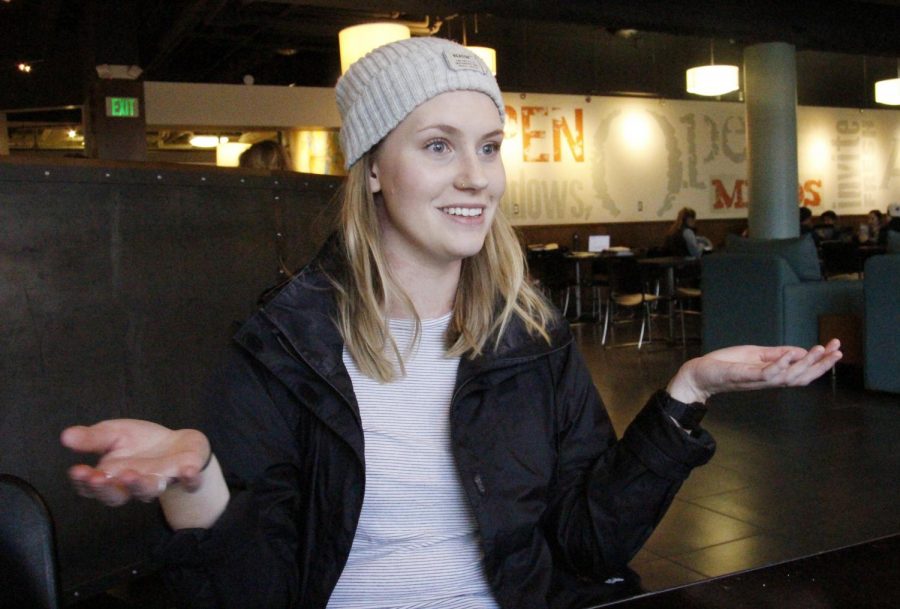Gap year allows for maturity, exploration
Pressure to go straight to college after high school keeps many students feeling trapped, misplaced
SAMANTHA DOHRMAN | THE DAILY EVERGREEN
Junior forestry major Emma Hall talks about working in Yosemite National Park during her gap year.
January 31, 2018
The mud was soaking me. Earlier that day, I had gutted a deer donated from a local hunter and sorted through dead chickens, and now there was a lion staring me down, hungry and devious, after splashing mud in my face.
Let’s be real: you can’t get used to a lion trying to scare the hell out of you in school. In fact, 90 percent of my experiences were things only a gap year could give. I learned to be independent without the pressure of grades, I gave my fried-from-senior-year mind a break, and, most importantly, I got to explore my options before committing to what I wanted to do.
After my gap year working with big cats at a local sanctuary (and a roller coaster at Six Flags), I went back to school, got my zoo keeping degree, and was a keeper for five years with hundreds of animals in my care.
You hear it over and over: finish high school, go to college, get your degree, work in a cubicle farm, make money, retire. The beautiful American dream.
But many students coming out of high school have no idea what they’re going to do, and many are burned out from all the work they’ve done just to get to that point. Many argue that you’ll know what you’re doing once you get into school, but that isn’t necessarily the case for everyone.
According to data collected by the Gap Year Association, high school burnout and self-exploration are the top two reasons students take gap years, and 88 percent had an easier time getting hired because of their experiences.
Along with this, according to statistics from The Leap, a site dedicated to gap years, “60 percent [of students] said a gap year helped them decide what subject to study at university.”
Emma Hall, a recent transfer student, entered WSU after her own gap year. Like mine, hers was unintentional, after she left one college and missed the application date for another.
“It ended up being the best decision ever,” Hall said.
She spent her summer and fall in Yosemite National Park, where she volunteered and worked while living in a tented cabin in the valley. It was a life-changing experience.
“I grew up a lot as a person,” Hall said. “Making my own decisions made me realize I was just a person in the world, versus the student I was my whole life.”
Many students who return from their gap years are more motivated and focused on their studies. This is mostly because they know what they want to do, but also because they are able to understand their own independence.
Hall was no different in this experience. Doing something completely different and experiencing an entirely new community allowed her to see things from a new point of view.
“It made me appreciate friends and nature and made me change my major to forestry,” Hall said. “It changed my perspective on what to do with my life.”
Hall encourages others to take gap years. Most Americans are now speeding through life — a societal norm that needs to change. We need to take the time to breathe and find ourselves.
“I’m so glad to take things slowly,” Hall said. “If I graduated at 21, I don’t think I would be doing something that I would enjoy as much.”










